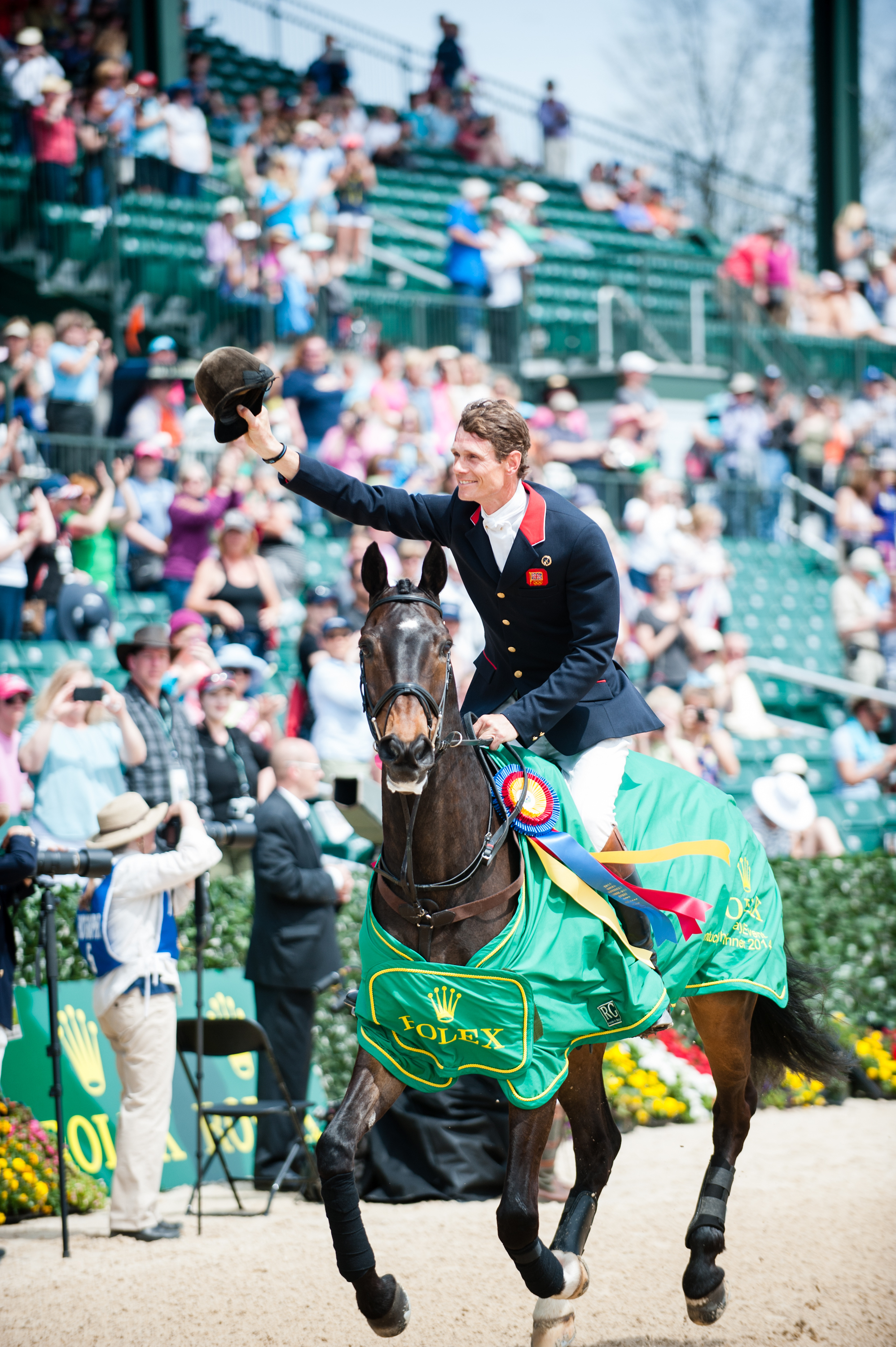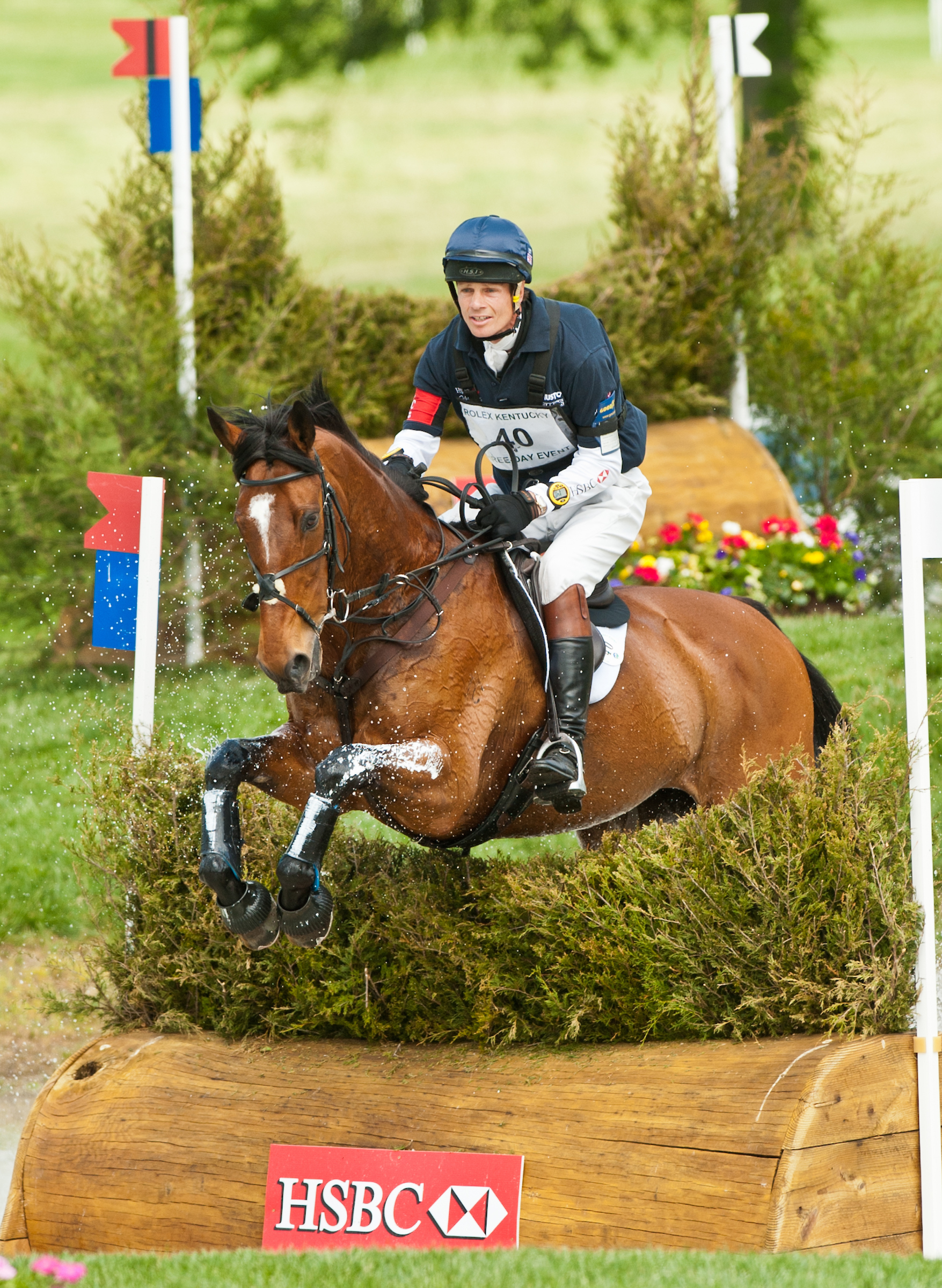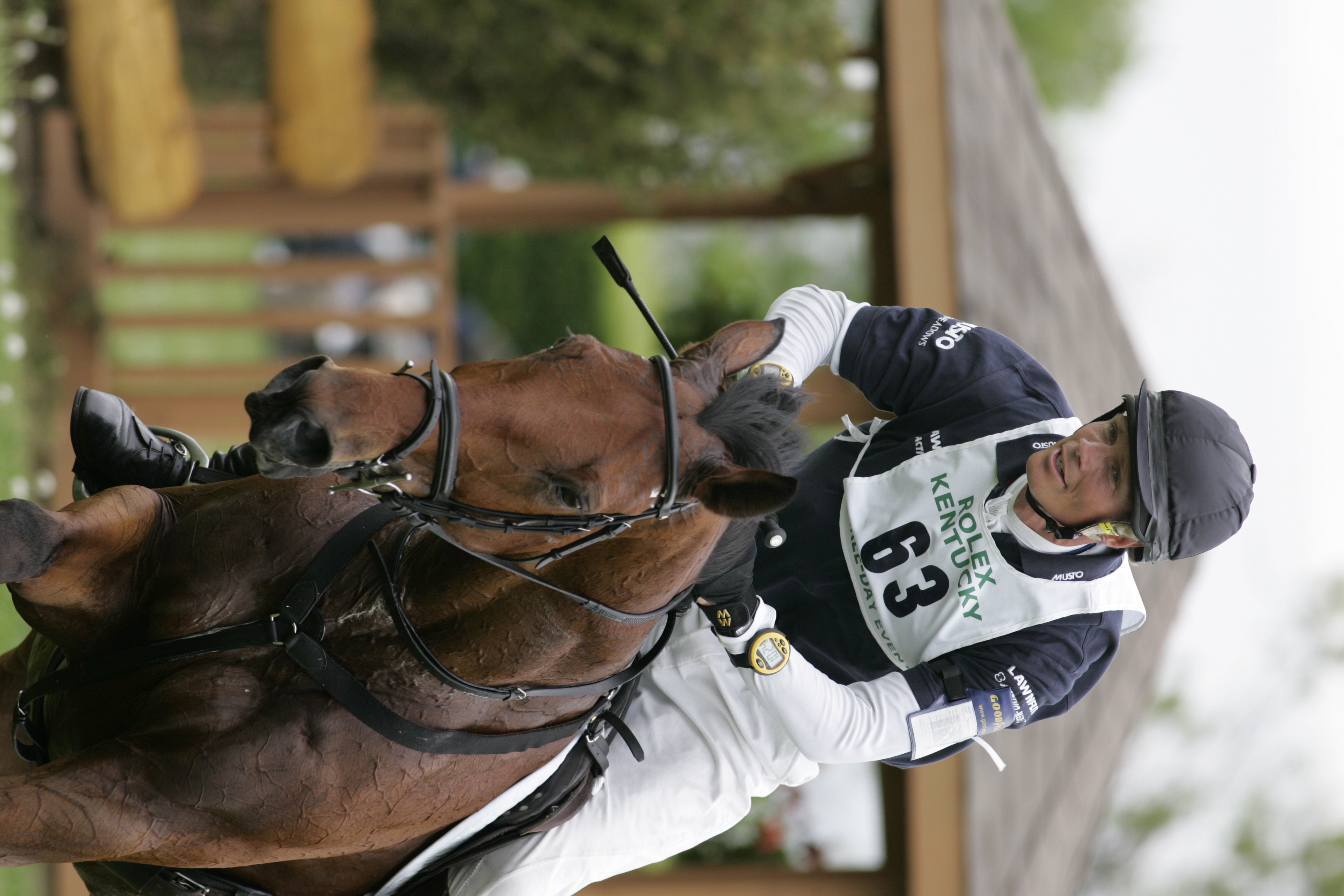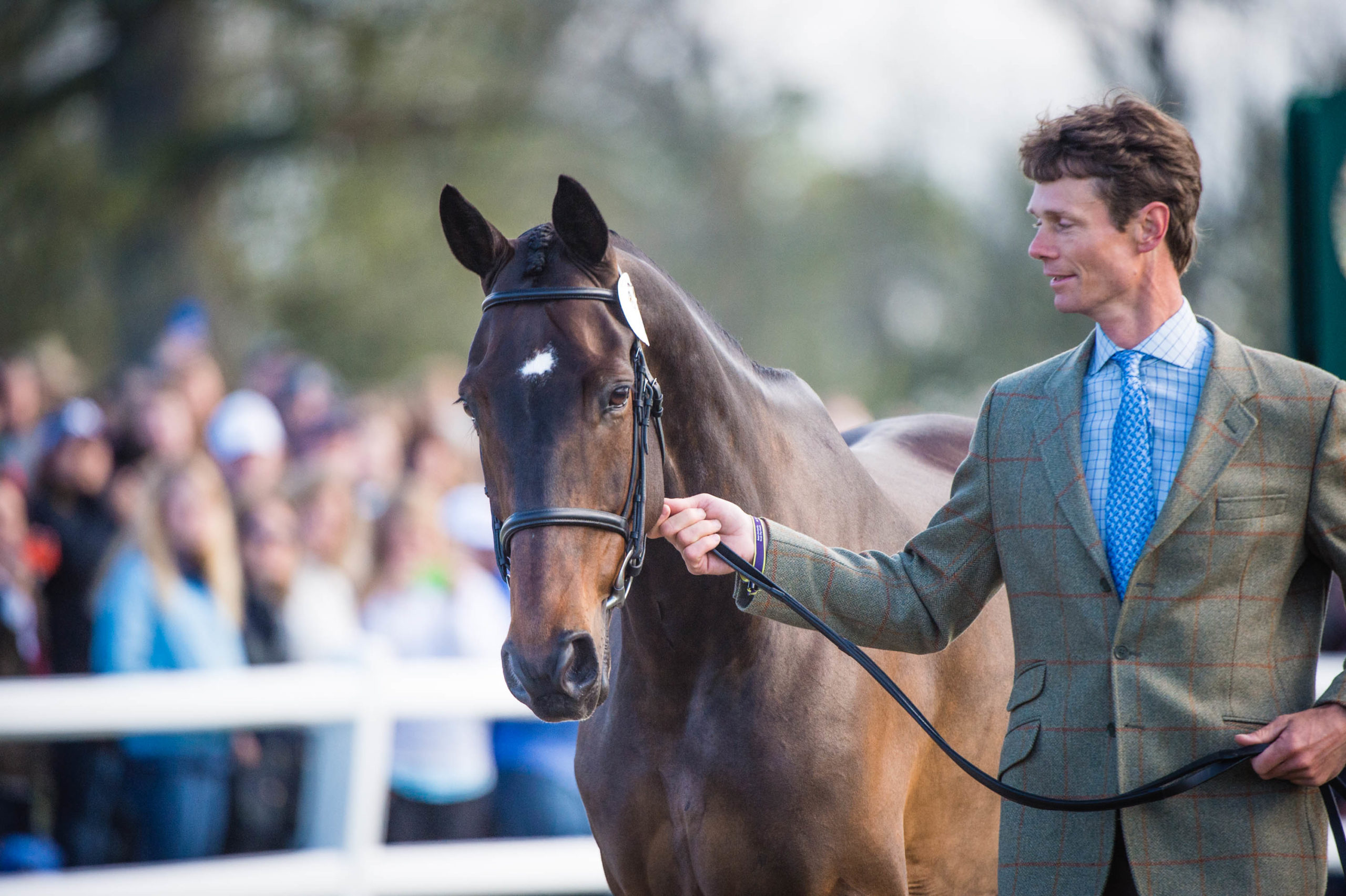
William Fox-Pitt is one of the most respected and successful event riders in the history of the sport, not just in his home country of Great Britain, but in the entire world. His resume over the past 20 years is nothing short of amazing. He’s earned a number of medals representing Great Britain in five Olympic Games and four World Equestrian Games and has won an incredible seven team gold medals at the European championships.
He was the first British rider to top the World Rankings list (which he did four times) and has been the British number one rider 11 times. He’s the only rider to have won Burghley six times (on six different horses, no less) and he’s the only rider to have won five of the world’s six five-star events (minus Adelaide in Australia, which is rather hard to get to from England). To date, he’s won an unprecedented 14 five-star events.

William isn’t just a world-class rider, he’s also an incredible trainer and horseman. He frequently travels to the United States for clinics, and I’ve been lucky enough to audit at a few over the years and try and soak up some of his knowledge. Teaching is one of his passions, and perhaps that’s something that was ingrained in him from a lifetime of horses. After all, his parents were accomplished eventers in their own rights, and both competed at Badminton.
Known for his soft-spoken demeanor and horsemanship, William has always been a fan favorite. But after a life-changing fall on cross-country in 2015 that left him with a serious head injury, many wondered if they’d ever see him out eventing again. William’s tenacity and strength surprised everyone and soon he was back out galloping at events and working his way back up the levels.

This past March, I was able to catch up with William, who was catch-riding at an eventing showcase in Aiken, South Carolina. It’s not every day you bump into William Fox-Pitt at a local event, and since the organizers had flown him in to add some international flavor to the show, I felt that this was an opportunity I couldn’t pass up. I’ll admit, I was rather nervous to get the chance to chat with one of my biggest idols as a rider, and I was worried I might have a bit of a fan girl moment. But for all of his success and notoriety, William is an incredibly down-to-Earth and genuine person to talk to. We had a candid conversation about the ups and downs of his career, his recovery from his head injury (and how it changed it changed his life), the future of eventing and also some training philosophies.
A few hours after our interview at the eventing showcase, William gave a master-class cross-country performance with Sandro’s Star, a stallion who competes at the upper-levels with Chris Talley. The courses were big and bold and set to Advanced height… but it was no sweat for William, and he expertly guided the stallion to a 3 place result, finishing the event on their dressage score. William had literally only sat on the horse for the first time at the event, but judging from the way Sandro’s Star responded to him on course, you’d think they’d been together for years.

But that’s just the type of rider that William is. His style, which seems so effortless but effective, has taken decades to polish and craft. Another interesting thing to note is that that William is quite tall and slim, but always seems to stay in perfect balance with his horses over the fences.
After listening to William share his future plans for his current string of up-and-coming stars, I was looking forward to seeing how he did at this year’s Badminton Horse Trials in England. Though he’s won this event twice before (in 2004 with Tamarillo and in 2015 with Chili Morning – who was also the first stallion to win the event) he hadn’t completed Badminton since his 2015 victory and the subsequent accident later that year that nearly ended his career.
After being glued to the livestream all weekend, I was pleased to see him finish ninth aboard Little Fire and thirteenth aboard Oratorio II, a son of his five-star winner Oslo.
After the event, William told reporters, “For a while I did wonder what I was doing [coming back to the sport],” But suddenly, at 50, I see a future. Who says that at 50?!”
Here a just a few of the excerpts from our conversation which you can listen to in full on Apple podcasts, Stitcher and Soundcloud:
You’ve had so many top horses and fan favorites over the years. What does it mean to you to have partnered with these incredible athletes?
It’s very true, I have had more than my fair share of wonderful horses. It’s hard to single out any. They’ve all formed me and given me my education. They’ve given me my experience. And they’ve given me a huge amount of mileage and fun. Whether it’s Tamarillo, or a wonderful horse I had called Stunning, or whether it’s Chilli Morning, Parklane Hawk, Bay My Hero… I’ve had wonderful horses. And how lucky is that? Without a good horse, you’re nobody. I’ve had a very good career with horses and, funny enough, I’m ancient now and I’ve got two lovely horses to ride at Badminton. How lucky am I?
What’s something you look for in an event horse, whether it’s mentally or physically?
The event horse… he’s a bit of a freak, isn’t he? I look for a horse that is an athlete. He’s got to be able to find competing easy, and he’s got to be easy over the ground, because if he’s not, he won’t stay sound anyway. So you want a horse that finds the game an easy game. You want a horse that has a good brain–he’s got to be clever. Those two things: a good brain and a good body, and then you can go places. The horses I’ve had in my career weren’t always the best horses, but they wanted to be. And I think a horse that wants to make it, really does.

What are some of your own strengths as a rider and what do you struggle with?
That’s a very personal question! I have no idea, really. I think I’ve been very lucky to have had the horses and to have had the backing and all the chances I’ve had. I’ve had so many doors that have opened my way and it just kind of happened.
Loads of riders in the world are a lot better than me and do things a lot more perfect than I do. I think I love horses and I love figuring out what makes them tick and what’s the best way to get the best out of them. I think that treating each horse as an individual is a very big part of my program. And campaigning horses for targets, not using them up around any old event just because you can. Have good plans and good targets for them and realizing what matters.
You do quite a lot of teaching. What are some of the key issues that you see a lot of event riders struggling with and what do you try to help them overcome?
I think the most important thing is to keep things simple. I’m a big believer in doing things properly and simply. Don’t start getting complicated and elaborating things and getting all intense and trying to make things perfect. It’s just about doing certain things well and being able to repeat that. And you achieve that in training by teaching the horse what is the normal way of going. You’re not going to turn him into Valegro. He’s just got to perform and put things together nicely with no mistakes.
It’s all about, dare I say in the modern world of eventing, no mistakes and clear round in the dressage. It’s all about settling for what is good and consistent and then building on what you can rather than going in and gunning for a big mark and making a big mistake. I think it’s more important to go for a good, healthy clear round and making no mistakes after that. Not knocking a pole down and not having a run-out on cross country. Not any of us can be Michael Jung. But we can have a good go. I think it’s just about keeping things simple and being disciplined and training your horses in a very clear, relaxed, black-and-white way.

A few years ago you had a serious head injury after a fall on cross country and a long road to recovery. What was that time in your life like and how did that affect you? Did you think that you would ever be back at the top level again or even want to be? What does it mean to be so successful again after such an ordeal?
Well, I’m not yet. It was a big phase of my life. I’ve been so lucky in my life not to have had too many injuries. I’ve broken the odd bone, but it’s all been okay. But suddenly you get a bang on the head and things are all up in the air. I was just so lucky to have had huge support from funding with the UK Sport lottery to have mental and physical help in a rehab program that me and my whole family could manage. I was so lucky to have my wife Alice looking after me.
For a long time, I was sort of “lost.” I was in my world, but just kind of off the map. I’m incredibly lucky, aren’t I, because I’m okay. I appreciated that the whole way through. I was lucky that I had a bump on my head but it didn’t make me grumpy or sad and it didn’t make me moody or difficult. And I think some bangs on the head do. And I think my own bang on the head might’ve made me loony in other ways, but it didn’t make me miserable.
I just kind of carried on. This thing happened in 2015 and I always thought I was going to Rio [Olympics] in 2016. That was part of my plan, I had Chilli Morning and it was all on the map. And I was in hell… I wasn’t able to see, let alone ride. I think I was very lucky to have had that unwavering focus that got me better.
Don’t miss the rest of the interview on the podcast!
ABOUT THE PRACTICAL HORSEMAN PODCAST
The Practical Horseman podcast will run every other Friday, features conversations with respected riders, industry leaders and horse-care experts to inform and inspire listeners. It will be co-hosted by myself and Practical Horseman editors Sandra Oliynyk and Emily Daily. Upcoming conversations are with eventers Allison Springer and Dom and Jimmie Schramm as well as hunter riders Liza Boyd and Shelley Campf. You can subscribe and listen to the podcast on Apple Podcasts, SoundCloud, Stitcher and while you’re there please rate and review the show.






